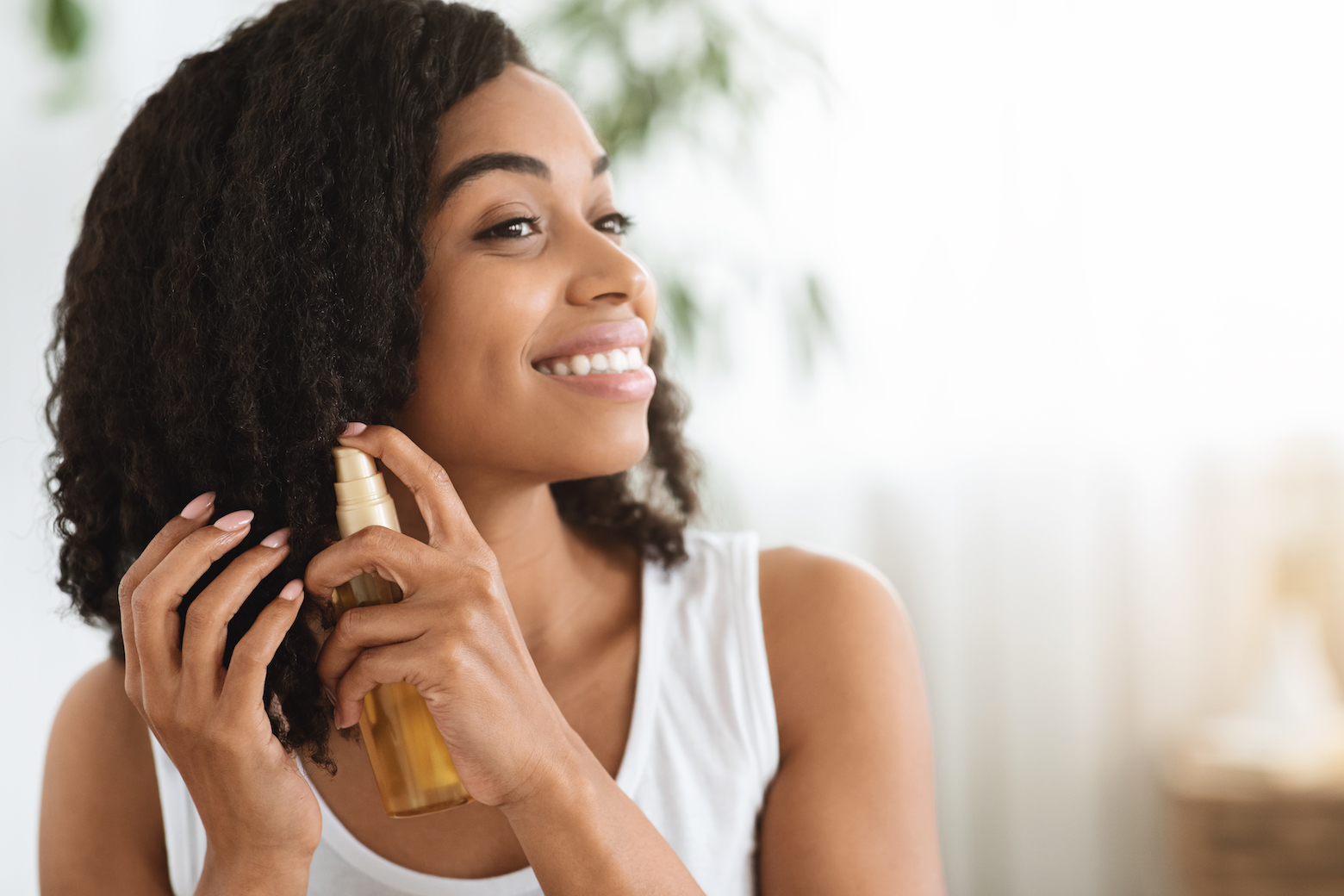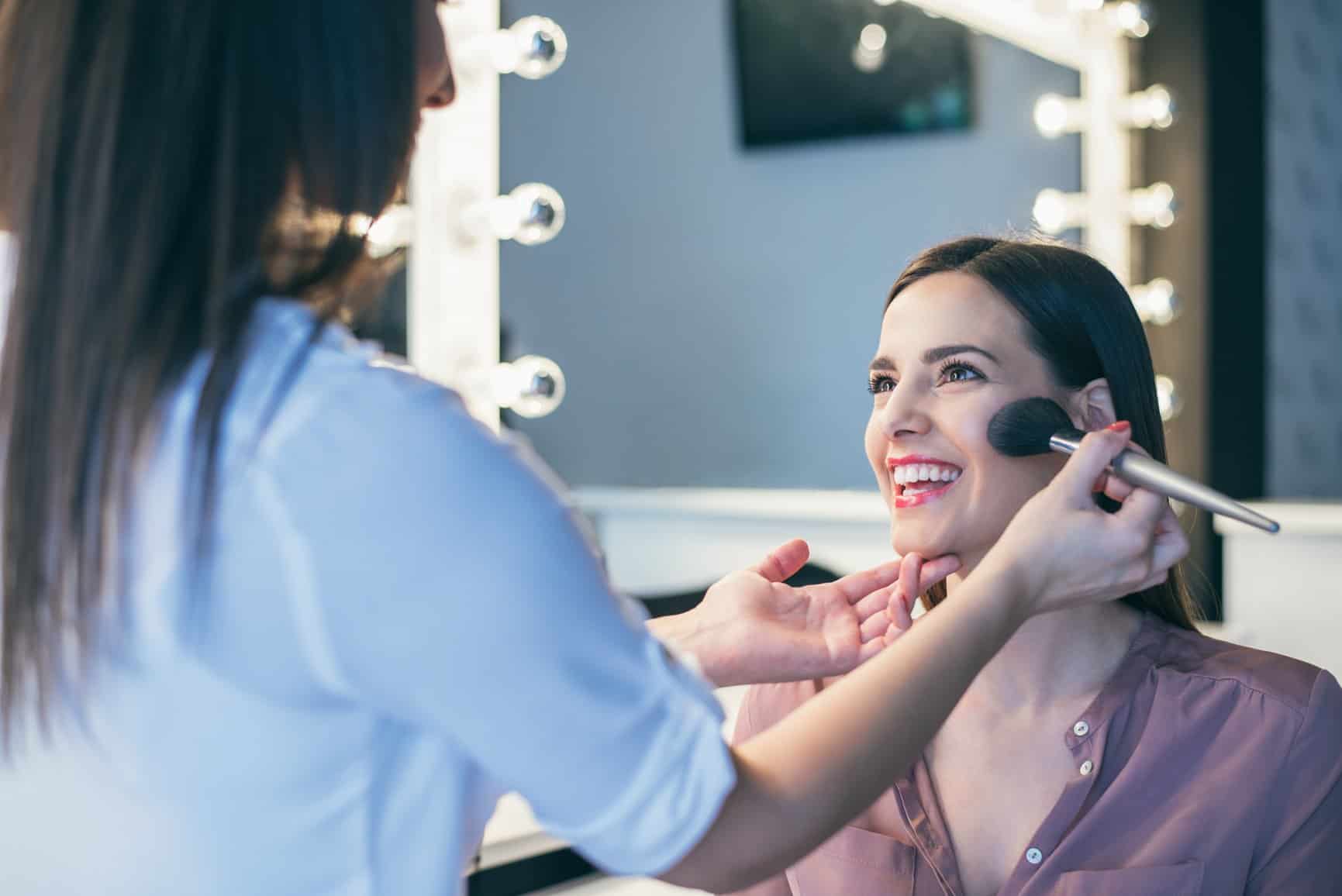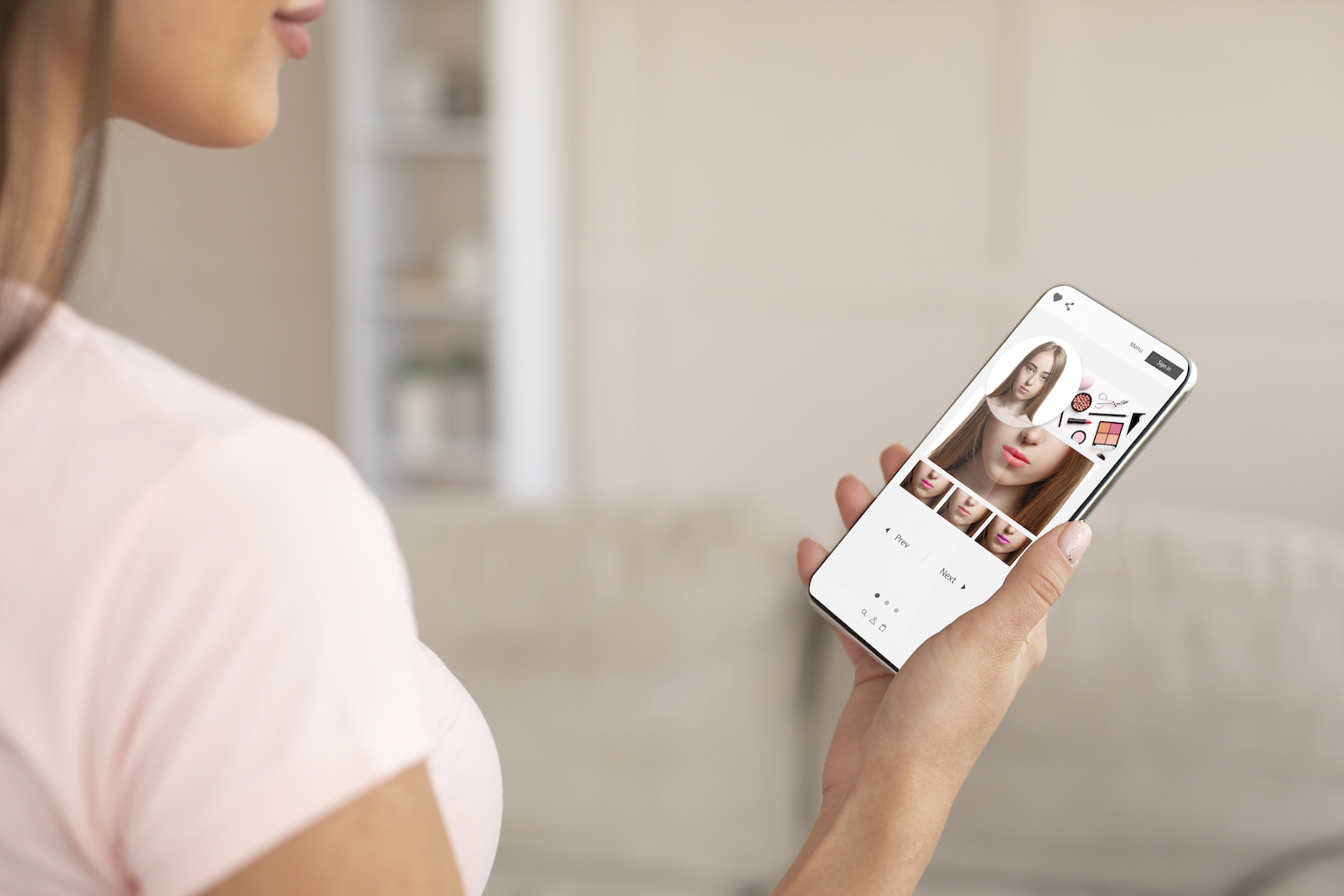Study: The Unsolicited Appearance Comments Americans Are Tired of Hearing

Words carry tremendous significance. Whether they are chosen with compassion and encouragement or hostility and criticism, words have the power to lift people up or tear them down. So, it’s crucial to reflect on the impact your language can have on others.
One subject that is commonly sensitive to talk about is someone’s appearance. Whether it’s commenting on weight, facial features, or any other physical attribute, the way we choose our words can make a big impact on self-confidence.
At StyleSeat, we wanted to find out what Americans deem acceptable when it comes to speaking about someone’s appearance, so we surveyed 997 Americans about their experiences.
Key Takeaways
- According to 88%, people need to be more careful about commenting on appearance.
- Weight, skin conditions, and teeth are the worst things someone can comment on.
- A large majority (75%) have heard a negative comment about their appearance that made them feel ashamed.
- It’s hard for 59% of people to accept compliments about their appearance.
- After hearing negative comments about their appearance, 48% of people agreed with them.
The Worst Body Comments
Well-intentioned or not, body comments are a sensitive topic, and 88% of our respondents think people need to be more careful when speaking about another’s appearance. All too often, the topic quickly falls casually into conversations, but not everyone enjoys hearing comments about their appearance. So being more conscious about what you say can help others feel more comfortable in their skin.
Everyone experiences changes over time, but not everyone wants to discuss those changes. As we grow older, our bodies grow with us. Our hair, skin, and face go through different phases as well. With so much change, it can be hard for those around us not to notice and even harder for some not to comment on the change. Our respondents agreed that some people are more likely to make comments than others, revealing that moms, grandmas, and co-workers are most likely to comment on body changes.
Not all body comments have the same impact though, and our respondents revealed the worst things people can comment on regarding appearance. Weight, skin conditions, and teeth are the top three subjects Americans agree are best not to comment on.
Even if your comments are shared with positive praise, over half of Americans would rather not hear anything. Our respondents revealed that, although typically shared with good intentions, even compliments can be difficult for some to hear as 59% have trouble accepting compliments about their appearance.
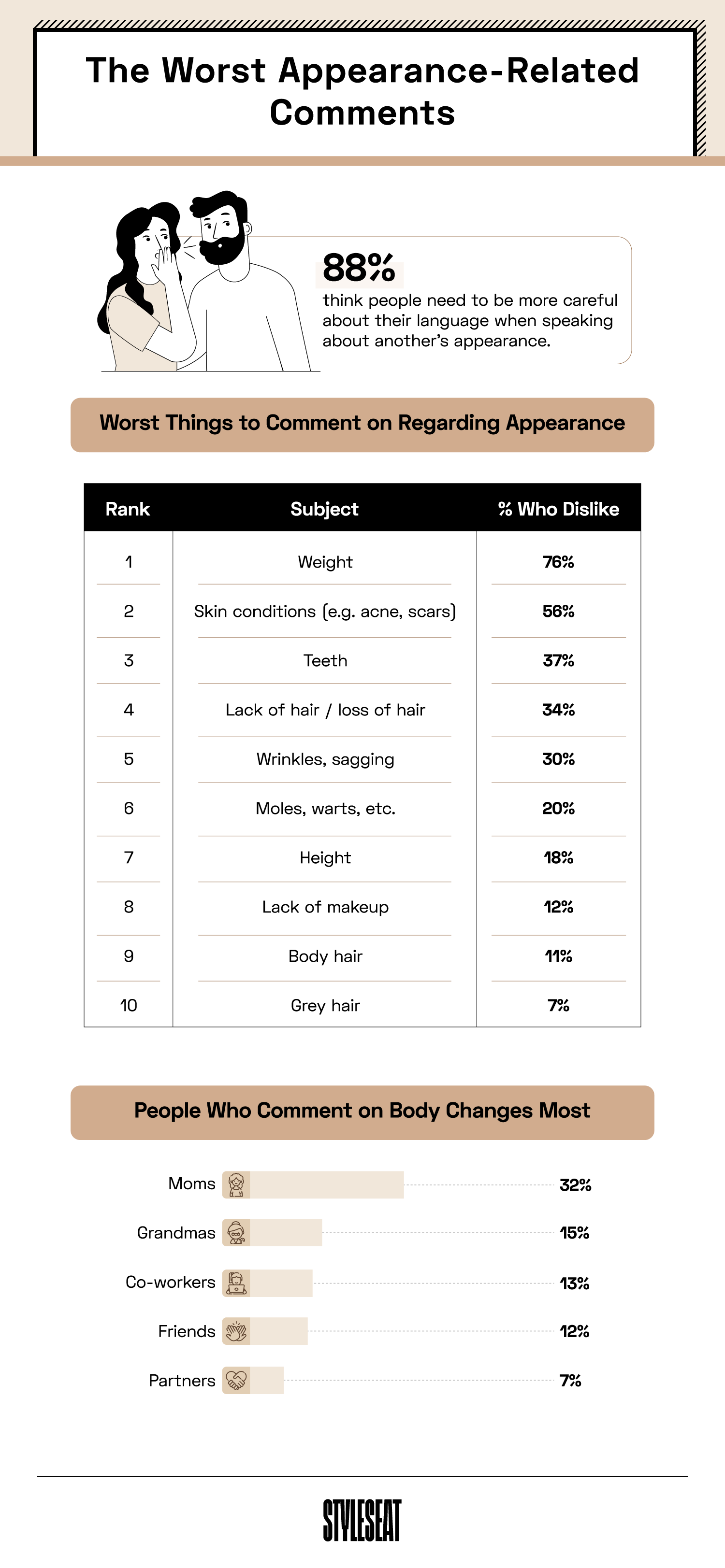
How Negative Comments About Appearance Affect Americans
Receiving offensive comments about how you look can cause many different emotions and responses, and 48% of people say they even agreed with the negative comments made about their appearance. These kinds of comments can also make people feel humiliated. In fact, 75% say they have heard a negative comment about their appearance that made them feel ashamed.
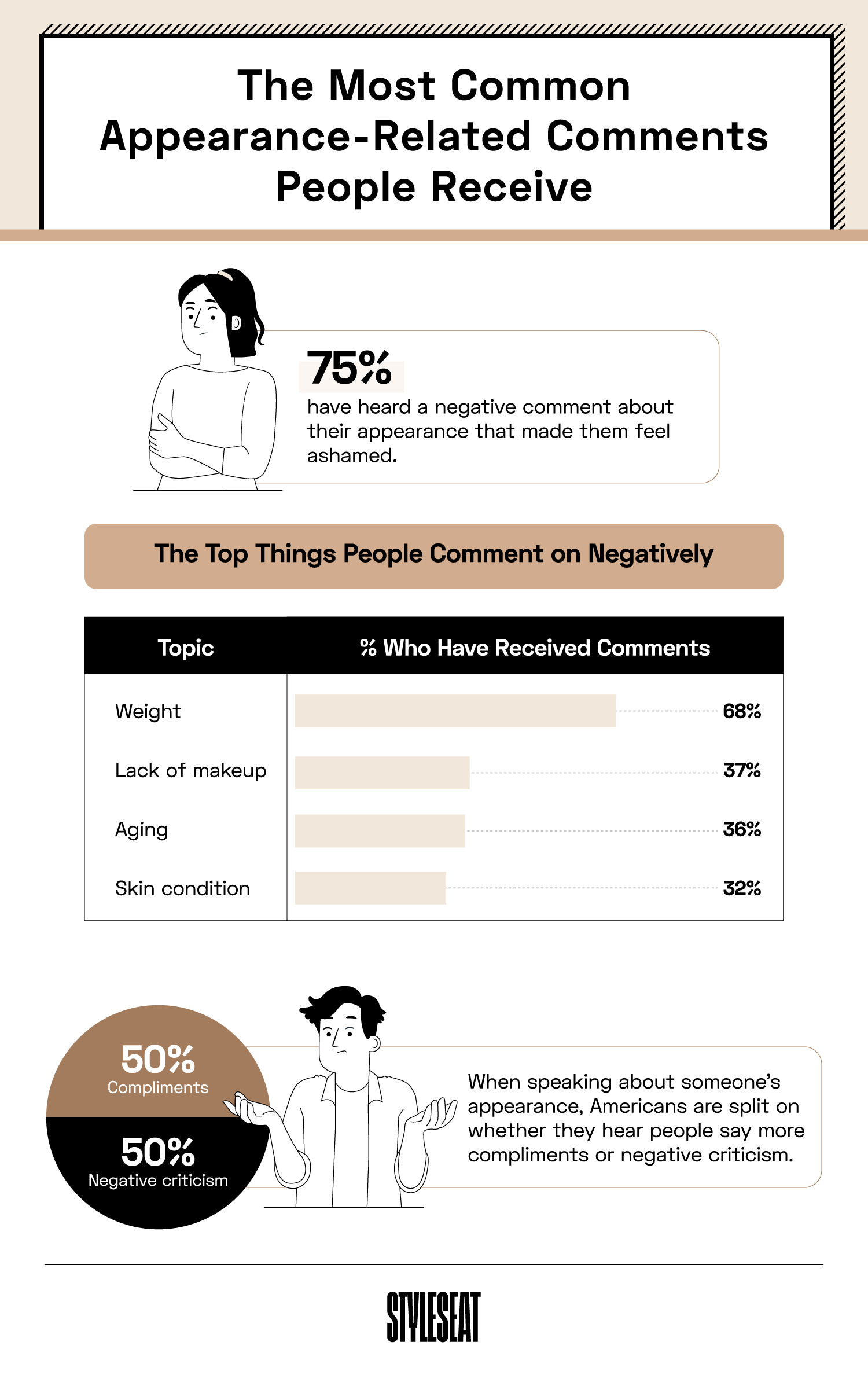
Our respondents revealed that weight, aging, and the lack of makeup are the top negative comments they hear. For women, the negative impact of comments on appearance can be even more powerful when it centers on weight. Comments about weight produce fear in a lot of women. If they gain any weight, 47% say they’re afraid people will ask them if they’re pregnant.
The Most and Least Offensive Weight-Related Terms
With so many adjectives and popular terms used to describe bodies and overall appearance, it can be hard to know what’s offensive and what’s not. With weight being the number one topic our respondents said was the worst to comment on, we wanted to know what terms were most and least offensive.
Respondents feel that fat, chunky, and chubby are the most offensive when referring to someone who looks overweight. However, although 71% feel like the word fat is an offensive term, there are many in the plus-sized community who are refusing to let the word be an insult any longer. The movement strives to normalize the word “fat” as just a descriptor as opposed to a body-shaming term.
When it comes to terms that describe someone who looks underweight, our respondents feel that lanky, skinny, and delicate are the most offensive.
Although our respondents don’t feel weight should be discussed, there are terms that they feel are least offensive. When describing weight in general, the least offensive terms are curvy and slim.
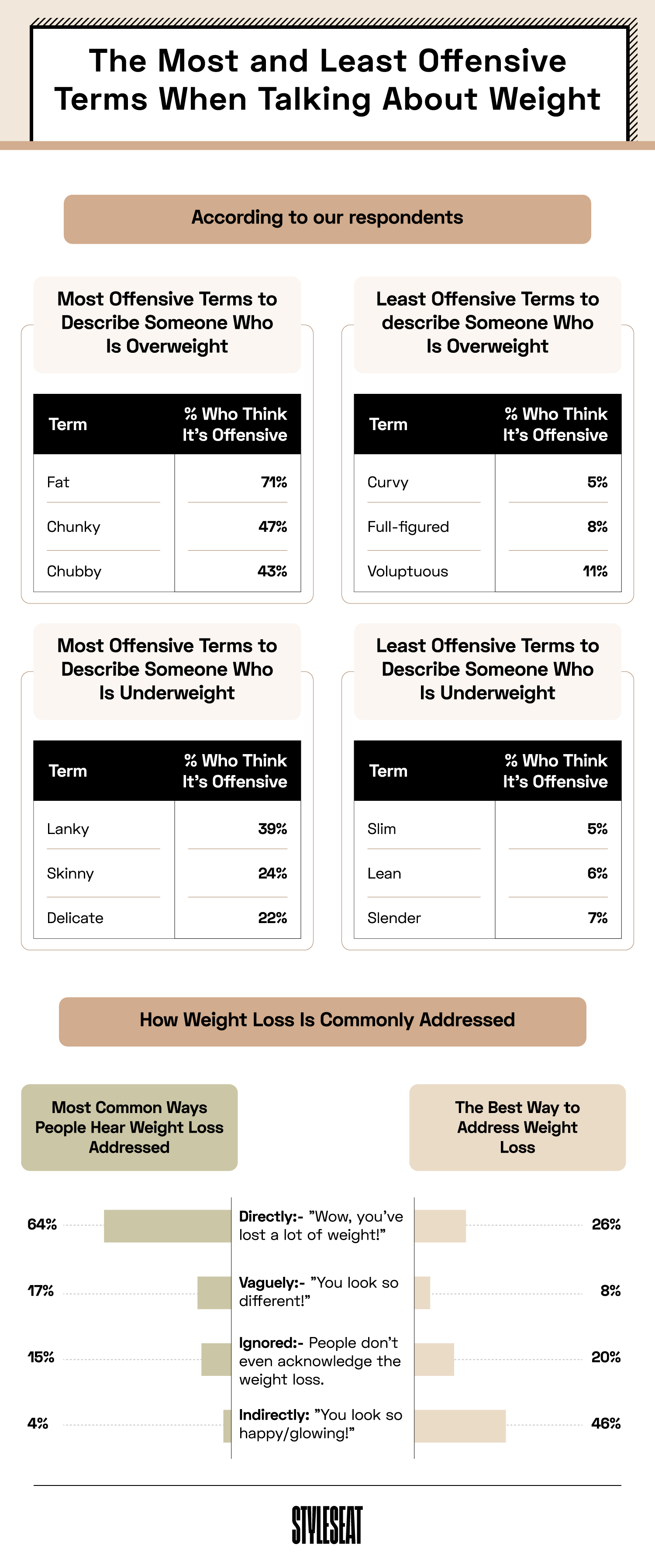
When approaching the subject of weight loss, it can be hard to know how to proceed. Is it rude to acknowledge the weight loss, or is it rude not to? We asked our respondents what approach was best: direct, vague, no response, or indirect.
According to our respondents, the most common way people hear weight loss addressed is directly, for example, someone saying, “Wow, you’ve lost a lot of weight!” However, our respondents feel that the best way to address weight loss is indirectly, for example, “You look so happy/glowing.”
Body Positivity on Social Media
Social media has become an integral part of our daily lives. It allows us to stay connected with friends and family, share our experiences, and more. However, as the platforms continue to evolve, so does the impact on our confidence, and 48% say they feel less confident about their appearance after scrolling on social media.
The online space can be used to educate, uplift, and encourage others among many other things. Yet, all too often it’s used as a place to spread negativity, as 61% think there are more negative comments about appearance on social media than positive ones. From our respondents, 24% have actually had someone leave offensive comments on social media about their appearance.
Conclusion
Considering what’s best to say or what not to say is an important practice before discussing anything, especially someone’s appearance. It’s crucial to choose words that uplift the other person rather than drag them down with negative critiques.
Talking about appearance isn’t always a touchy subject, though. There are times when you should be very vocal about what you like and don’t when it comes to appearance, and that’s when you’re talking to a beauty professional about your style needs. Beauty and wellness professionals like those on StyleSeat, provide countless services to clients that help them gain more confidence and enhance their natural features.
So whether it’s telling them how you’d like or hair or makeup done, it’s important to speak up about the look you’re going for so you get exactly what you want! If you’re in need of a beauty service but don’t know where to find a professional that will listen to and meet your unique needs, check out our free stylist search tool that can help you connect with local stylists.
Methodology
On June 28, 2023, we surveyed 997 Americans about their experience and thoughts on talking about someone’s appearance. Respondents ranged in age from 18 to 76 years old, and were 49% female, 49% male, and 2% nonbinary.
